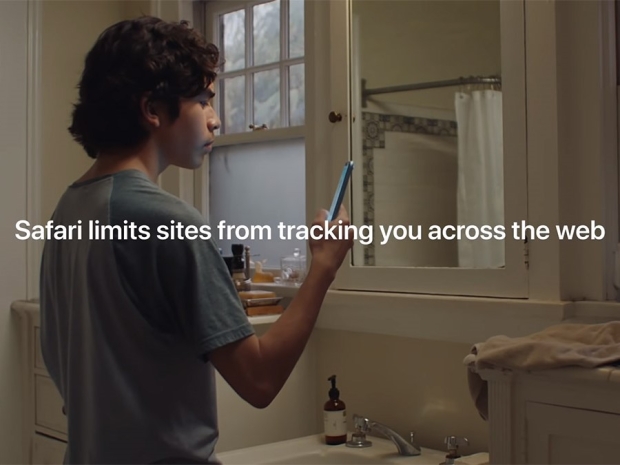In advertisements that have aired during the Olympics and are popping up online, where someone installs Safari and starts zapping cameras which are following them.
However, Albert Fox Cahn, executive director of the Surveillance Technology Oversight Project, said Safari is no better than the fourth-best web browser for your privacy.
“If browser privacy were a sport at the Olympics, Apple isn’t getting on the medal stand,” Cahn said.
He said that users could do better either by tweaking your Apple settings or using a web browser that’s even more private than Safari.
While Safari stops third-party cookies anywhere you go on the web, so does Mozilla’s Firefox and the Brave browser. You can use either of those on a Windows PC, Mac, iPhone or Android device.
Safari does allow other forms of tracking. A website can pull information like the resolution of your computer screen, the fonts you have installed, add-on software you use and other technical details that in aggregate can help identify your device and what you’re doing on it.
The measures, typically called “fingerprinting,” are privacy-eroding tracking by another name.
Center for Democracy & Technology Nick Doty said there’s generally not much you can do about fingerprinting. Usually, you don’t know you’re being tracked that way.
The fruity cargo cult says it defends against common fingerprinting techniques but Cahn said Firefox, Brave and the Tor Browser all are better at protecting you from digital surveillance. That’s why he said Safari is no better than the fourth-best browser for privacy.
Another issue is that Safari’s “private” mode is not private from everyone. When you’re using this mode in Safari, your device’s web browser won’t save a record of what websites you looked at or what web searches you did.
But as with most other browsers, the websites you’re using and your home internet provider or workplace may still know the sites you visited. If you use a virtual private network — software that shields your location — the VPN owner likely logs where you go even in private mode.
Mozilla has a helpful myth-busting document about Firefox’s private browsing mode that may apply to other browsers, too.

